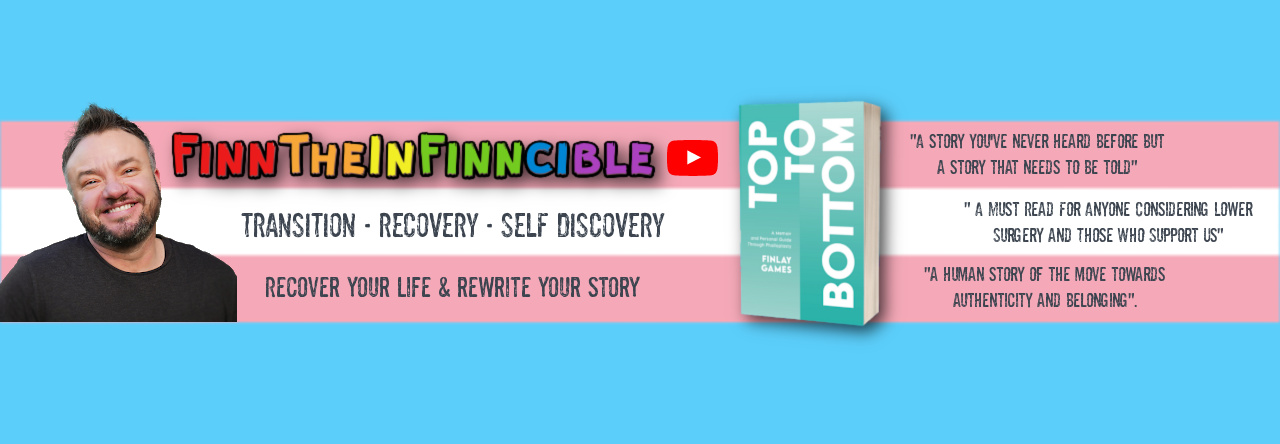
As a transgender gay man, I am a member of one of the highest at-risk communities, for mental health issues. Unfortunately, this means that I am no stranger to suicide. I have lost many LGBTQ+ friends to suicide and seen many more attempt to take their lives. We need to address this now by tackling the stigma which still exists in society, and by providing mental health support for LGBTQ+ people.
Having a Marginalised Identity can Negatively Impact your Mental Health
My gender identity and my sexuality, are very much related to my own mental health challenges. A lack of information meant that I did not discover I was transgender until I was thirty-seven years old. Having undiagnosed and untreated gender dysphoria for so many years, understandably took its toll on my mental health. Then, in coming out as transgender, I faced a society which is still largely unaccepting of transgender people. Add the fact that I am also gay and I have a melting pot of a marginalised and undervalued identity. My experience is echoed by many people in my community.
LGBTQ+ People Have The Highest Rates Of Poor Mental Health and Suicide Attempts
Statistics frequently highlight that people in the LGBTQ+ community are more likely to experience mental health issues like depression and anxiety. Transgender people are especially at risk, with shockingly high incidences of suicide attempts. It is important to remember that LGBTQ+ people are not feeling this way because of how they identify, but because of the stigma attached to the LGBTQ+ identity.
For example, not long ago, I received a heartbreaking message that a young trans lad, worn down by incessant bullying in school, threw himself off a building. He thankfully survived but may be forever damaged. When speaking of him, people will say “he attempted suicide.” However, he didn’t jump from a building because he wanted to die, he jumped off a building because he wanted peace. He felt this was the only way to escape the daily bullying.
How We Can Prevent Suicide In The LGBTQ+ Community
If we are to address the poor mental health of LGBTQ+ people, not only do we need more help and support for those in crises, but we also need to address these underlying issues. This means such as :
A zero tolerance approach to bullying, in social spaces and online
- This not only protects vulnerable people but also sends a message that LGBTQ people are worthwhile and deserving of fair treatment and respect.
A clampdown on negative media regarding transgender people
- Negative messages and misinformation in the media and constant ‘debates’ about the validity of an individuals gender are demoralizing and dehumanizing. Accurate and positive representation in the media helps to foster acceptance and understanding of gender difference.
Improved rights for LGBTQ+ people to tackle discrimination
- Equal rights and protections sends a clear message that LGBTQ folk are as valued in society as everyone else.
Enhanced mental health and support services for LGBTQ+ people that address our specific needs
- Having a service that understands the particular needs of our LGBTQ community helps to foster a sense of belonging and a feeling that we are heard and understood.
Quicker and more easily accessible gender services for transgender people
- Waiting over a year for a first appointment at a Gender Identity Clinic is unacceptable. We need an overhaul of services so that transgender people have easy access to local services who can provide support, access to cross-sex hormones and surgery, in a responsible but timely manner.
Addressing these issues will go a long way in preventing people from reaching the point where they feel their only option to end their pain is to take their own life.
Never be Ashamed To Ask for Help
If you are struggling with your mental health, please reach out for help, you do not need to go through this alone. Reaching out is a strength, not a weakness. It can be so easy, in dark times, to feel things have always been awful and will never get better. Things will get better, but sometimes we need people to remind us of this and be with us until they do.
One of the biggest things I have found to be helpful in my own journey is to develop a support network. I have found that sharing with other LGBTQ+ people can be very reassuring. Furthermore, spending time with other LGBTQ+ people can help to remind us of our own worth and value.

Useful Links for Help and Support
- MIND LGBTQ – Various Mental Health Resources
- Albert Kennedy Trust – For LGBTQ people between 16 – 25
- Gendered Intelligence – Support for transgender young people and their families
- Stonewall – Link to various support and groups in your area
- The Samaritans – Support for anyone feeling suicidal


[…] In taking our identities seriously, this has the potential to improve acceptance and understanding of trans people. Greater recognition will in turn lower incidences of discrimination and transphobic abuse. Enhancing trans lives in this way will improve our mental health and lower suicide rates. […]